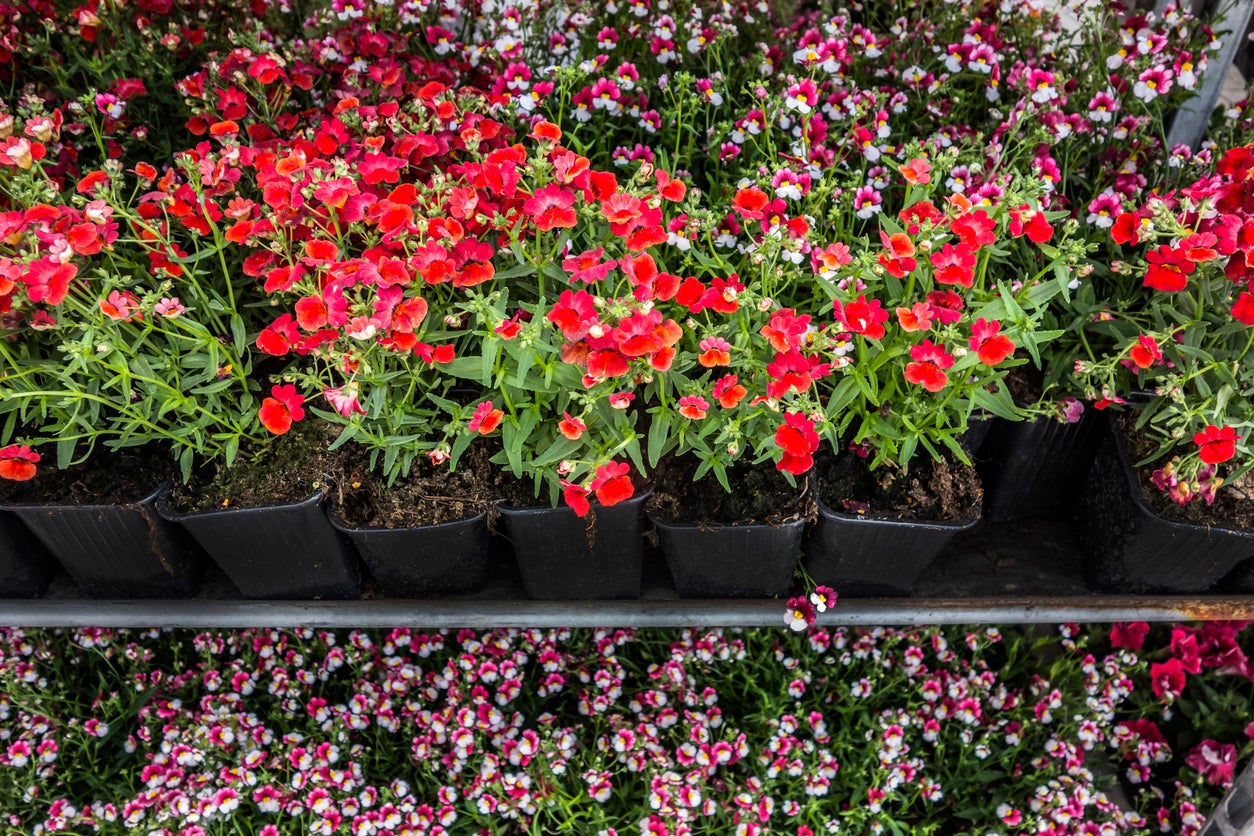Nemesia Plant Propagation – Tips For Propagating Nemesia Flowers


Sign up for the Gardening Know How newsletter today and receive a free copy of our e-book "How to Grow Delicious Tomatoes".
You are now subscribed
Your newsletter sign-up was successful
Nemesia, also known as little dragon and cape snapdragon, is a pretty, flowering plant that is most often used in gardens as an annual. Plants can flower for months in the right climate and the blooms are delicate, resembling snapdragons. Propagating nemesia flowers is an economical and easy way to keep this plant going year after year as an annual.
About Nemesia Reproduction
Nemesia is a group of flowering perennials native to South Africa. It grows up to about 2 feet (61 cm.) tall with many erect, branching stems. Flowers that resemble snapdragons develop at the tops of the stems. These are naturally white to blush or mauve with yellow in the center. Nurseries have also bred several different cultivars in a range of colors.
In its native range, nemesia is a grassland flower. It has a long, woody taproot that helps it survive frosts, fire, and drought. Gardeners like nemesia because of the pretty flowers that do well in containers and beds, and they are easy to grow and can survive temperature dips down to about 20 degrees Fahrenheit (-6.7 Celsius).
These plants are also fairly easy to propagate. Nemesia reproduction is like any other flowering plant, and if you let it set seeds, it will propagate on its own. To intentionally propagate nemesia, you can do so by sowing seeds or by taking cuttings.
How to Propagate Nemesia by Seed
Using seeds is the preferred method, but with some of the specialty color forms, cuttings are better.
To propagate by seed, let your plants develop their white or brownish flat seed capsules. Collect the seeds in the fall to sow the next spring. You can either start them outside once temperatures have reached 60 degrees Fahrenheit (16 Celsius) or indoors six weeks before the last frost.
How to Propagate Nemesia by Cuttings
Nemesia plant propagation can also be done by cuttings. If you have a color variant you like, this is the best method to ensure you get the same color again. The best time to take cuttings from nemesia is in spring. But if winters in your area are very cold, you can take cuttings in the fall. Container plants can be brought in for the winter for spring cuttings.
Sign up for the Gardening Know How newsletter today and receive a free copy of our e-book "How to Grow Delicious Tomatoes".
Take your cutting from nemesia in the morning on a spring day from the fresh, new growth. Cut about 4 inches (10 cm.) of a shoot just above a bud. Trim off lower leaves and dip the end of the cutting in a rooting hormone, which you can find at any nursery or garden store.
Gently place the cutting in moist, rich potting soil and keep it in a warm place. You should get good root growth within four to six weeks. Nemesia cuttings develop roots quickly, but they do best in pairs, so put at least two cuttings in each container. Keep the soil moist and transplant outdoors or to permanent containers once you see strong root growth.

Mary Ellen Ellis has been gardening for over 20 years. With degrees in Chemistry and Biology, Mary Ellen's specialties are flowers, native plants, and herbs.